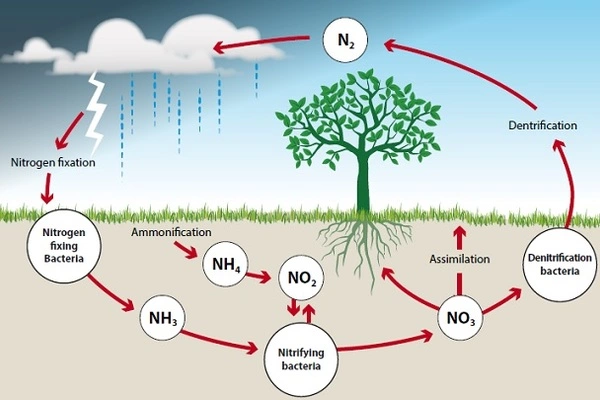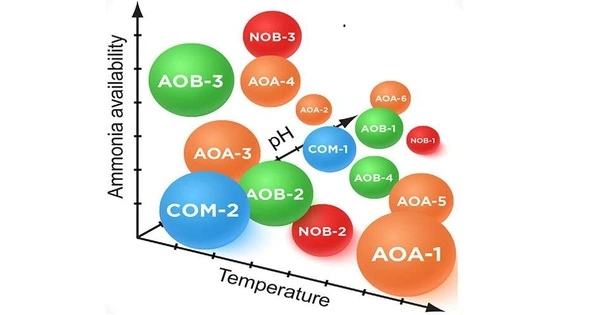Microorganisms play critical roles in the nitrogen cycles of various ecosystems. A greater diversity of microorganisms than previously thought is involved in the nitrogen cycle, according to research. It is becoming clear that denitrifying fungi, nitrifying archaea, anammox bacteria, aerobic denitrifying bacteria, and heterotrophic nitrifying microorganisms are important players in the nitrogen cycle.
Under our feet, in the soil, there is a plethora of microbial activity. Microbes have different metabolisms and food preferences than humans. Microbes, in fact, play an important role in making nutrients available to plants.
Xinda’s most recent review paper Lu and his colleagues investigate the various roles that soil microbes play in the nitrogen cycle. Lu is a Massachusetts Institute of Technology researcher.
Lu claims that “The majority of soil nitrogen transformations into plant-usable forms are catalyzed by soil microbes. Different microbes use different processes and sometimes collaborate. Farmers can benefit from understanding the various types of soil microbes and how to link microbes to specific soil processes.”
The majority of soil nitrogen transformations into plant-usable forms are catalyzed by soil microbes. Different microbes use different processes and sometimes collaborate. Farmers can benefit from understanding the various types of soil microbes and how to link microbes to specific soil processes.
Xinda Lu
Modern nitrogen fertilizers are applied in the form of ammonium. Through a biological process called nitrification, soil microbes convert ammonium to nitrates that plants can absorb. In order to be efficient at this process, microbes need oxygen. Researchers are studying nitrification because it can be linked to greenhouse gases and loss of fertilizer.
Although microbiologists have been studying the nitrogen cycle for over a century, not all steps were well understood. New microorganisms have recently been identified. A type of prokaryote (single-celled organism) called archaea has also been playing a role in nitrification.
Archaea are not technically soil bacteria, due to their structure. There are many more archaea that contribute to nitrification in some soils than there are bacteria responsible for the same activity. Including the role of archaea in nitrification has broadened the understanding of scientists and researchers.

Researchers examined various soil nitrification studies. The abundance of microbes in the soil in relation to various environmental factors was included. Soil pH, temperature, and the carbon-to-nitrogen ratio were all compared to the number of microbes in each soil sample. Microbe abundance is also influenced by soil depth and other factors.
Previous research has found that nitrification archaea are more abundant than bacteria in warmer temperatures. Other microbes thrive in colder environments. The activity of soil microbes in the nitrification process is also affected by soil pH. Nitrospira bacteria were more prevalent in acidic soils, such as forests and farm fields.
Researchers have also looked into how different microbes “talk” to one another. This ensures that the nitrification process runs smoothly. Several mechanisms, including cell signaling, have been proposed. The presence of nitric oxide in soils may improve microbe interactions.
Soil scientists are confident that they have not discovered all of the microbes that contribute to the vast array of services provided by soils. Soil microbiologists will discover new soil microbes as tools advance, just as astronomers discover new stars in the sky. Some may be involved in the nitrification process. Collecting and cataloging the type, abundance, and location of soil microbes will help us learn more about the soil nitrogen cycle.
















